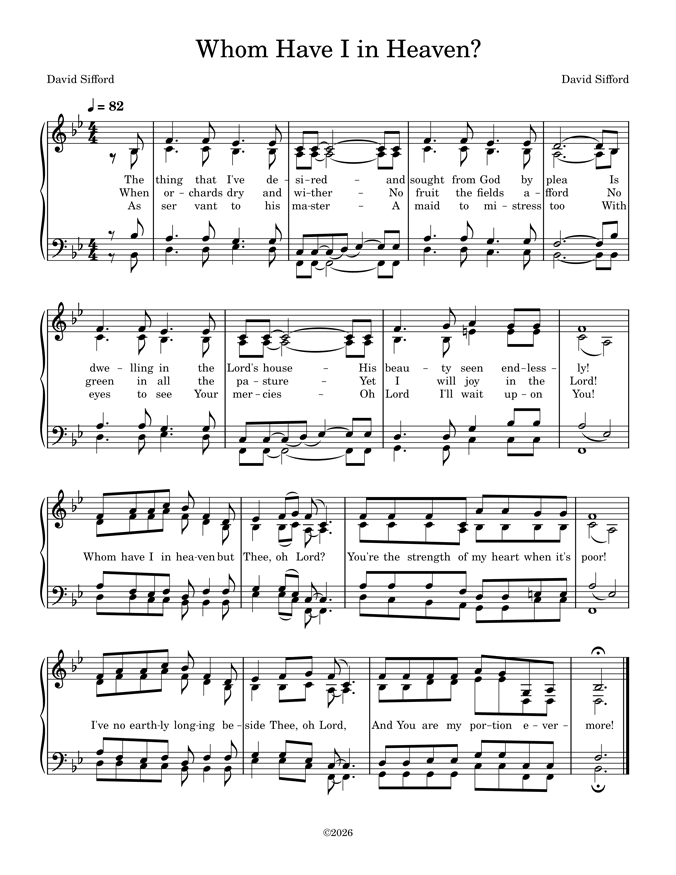Like most of the other animals the Lord has brought across our path, with Misty showing up came another inspiration for a song. 🙂
Her lyrics were these, since “Misty” and “miss thee” flow from each other 🙂 :
Misty, I miss thee
Misty, I miss thee
Misty, I miss thee everyday
And with them came the initial chorus tune. For me, usually the lyrical rhythms lend to a tune coming out of them. Then, a verses tune seemed to just kind of flow from the chorus tune.
And with the both tunes, and since when putting them together it didn’t really sound like a hymn to me, where in the past I would find hymn lyrics to use that I thought were good, I figured I would have to come up with my own. But, I don’t do well with that. Still, I looked for a theme, something like the idea to cover the names of Jehovah in “Jehovah is His Name!” that I put together. I did ask God for help too.
I thought then, what I’d really like to do is take some scripture sets that are special to me and that have been part of my life and use them, the main one being the following, which for me has become a set of personal life-verses:
Psalm 73:25-26:
25 Whom have I in heaven but thee? and there is none upon earth that I desire beside thee.
26 My flesh and my heart faileth: but God is the strength of my heart, and my portion for ever.
Given that idea, I was able to fit them into the chorus part of the tune.
Then, it was to try to do the verses.
Here are the other scripture sets I wanted to use. This is special as I do pray my desire is to behold the Lord’s beauty, as He is most beautiful:
Psalm 27:4:
One thing have I desired of the Lord, that will I seek after; that I may dwell in the house of the Lord all the days of my life, to behold the beauty of the Lord, and to enquire in his temple.
This next set is special because Sue sent them to me to encourage and exhort me after difficulties with the homestead, years of drought and lack of time (which partially stems from lack of financial resources), where many orchard trees have died, one of the gardens is ruined because the stray doggies we found need a place to run during the day, and things need repairs:
Habakkuk 3:17-19:
17 Although the fig tree shall not blossom, neither shall fruit be in the vines; the labour of the olive shall fail, and the fields shall yield no meat; the flock shall be cut off from the fold, and there shall be no herd in the stalls:
18 Yet I will rejoice in the Lord, I will joy in the God of my salvation.
19 The Lord God is my strength, and he will make my feet like hinds’ feet, and he will make me to walk upon mine high places. To the chief singer on my stringed instruments.
And this one is special too. A favorite preacher of ours, in encouraging one to pray, said that if you don’t know what to pray, pray the Psalms. Well, I adopted that, and it has been a blessing, asking God they would be praises from my heart, that He would cause me to do what are in the various Psalms, and that He would hear my cries when the difficulties and the like applied.
At one point, I was asking God for direction in a matter, to pursue a path or not, and the next day, I believe He directly answered my prayer with the prayer Psalm for that day, and it has become a personal mantra for myself since, keeping our eyes on Him. I was so grateful for this answer to prayer:
Psalm 123:
1 Unto thee lift I up mine eyes, O thou that dwellest in the heavens.
2 Behold, as the eyes of servants look unto the hand of their masters, and as the eyes of a maiden unto the hand of her mistress; so our eyes wait upon the Lord our God, until that he have mercy upon us.
3 Have mercy upon us, O Lord, have mercy upon us: for we are exceedingly filled with contempt.
4 Our soul is exceedingly filled with the scorning of those that are at ease, and with the contempt of the proud.
And so, given each of those verse sets, I was indeed able to fit them into the verse melody.
Then, with the melody already in the composer, it was adding the lyrics, and then the harmonies.
And here’s the printed result. Note that I use the word “poor” as it is sometimes used in the Bible as being “needy” or “destitute of strength” or “destitute of spirit” (here’s Webster’s 1828 on the word “poor“):
And a PDF version:
Here’s the audio vocal version with Sue graciously singing it with me:
Whom Have I in Heaven? – Vocal (MP3)
And here’s an audio instrumental version:
Whom Have I in Heaven? – Instrumental (MP3)
I thank the Lord for granting this little song, and for Him I believe even granting the melody and lyrics themselves. I pray it glorifies Him in some way.
— David



















